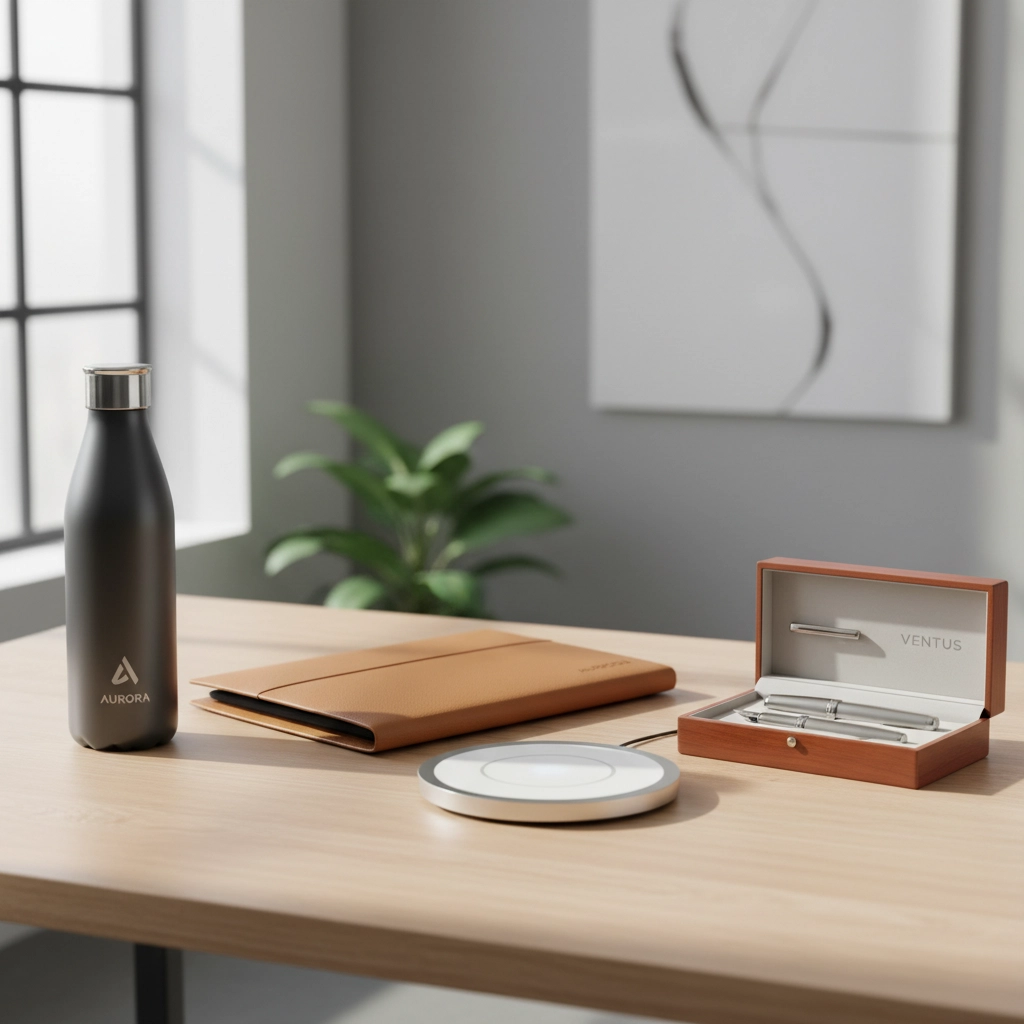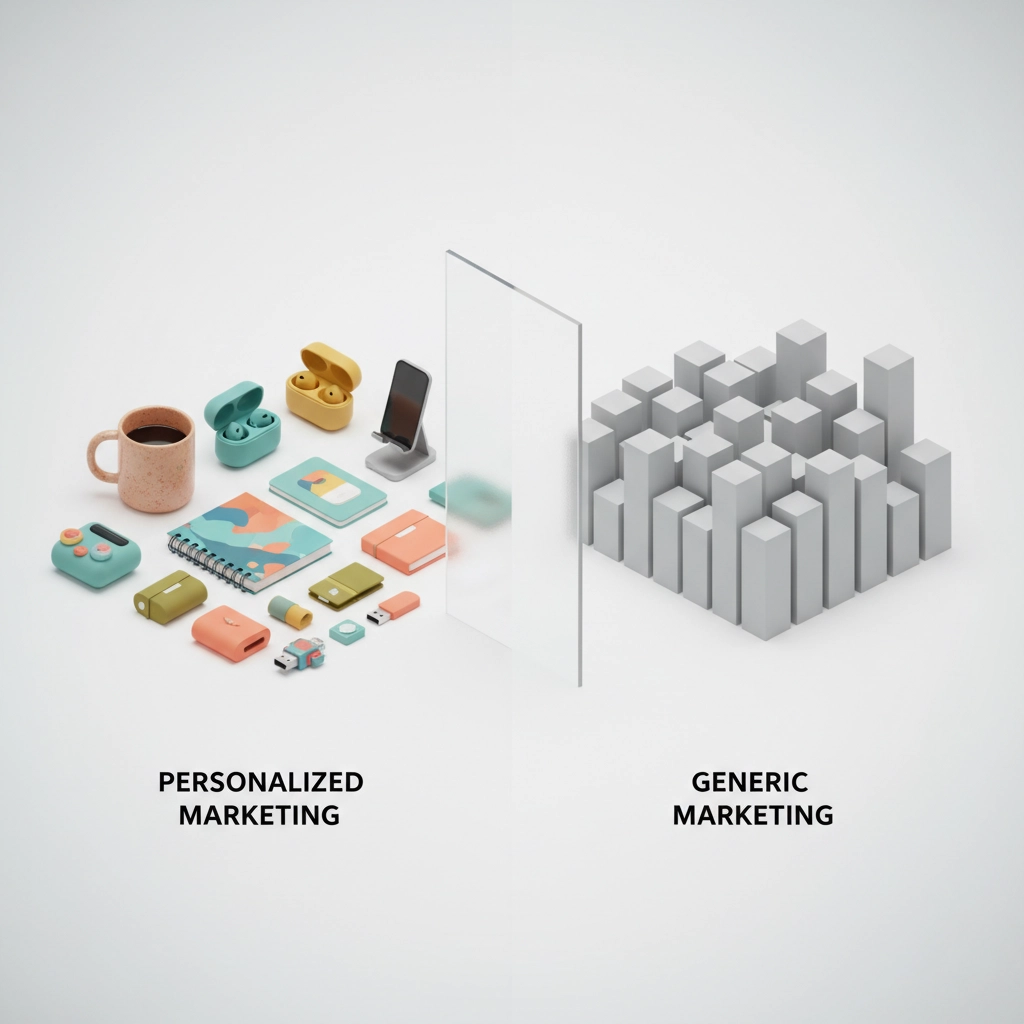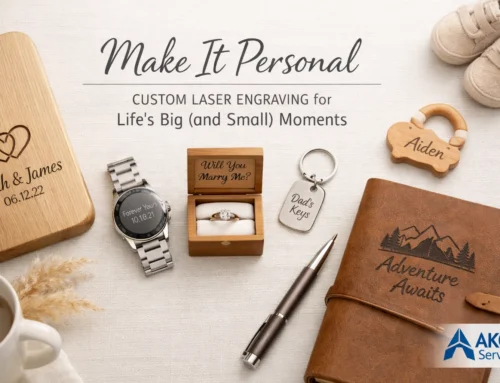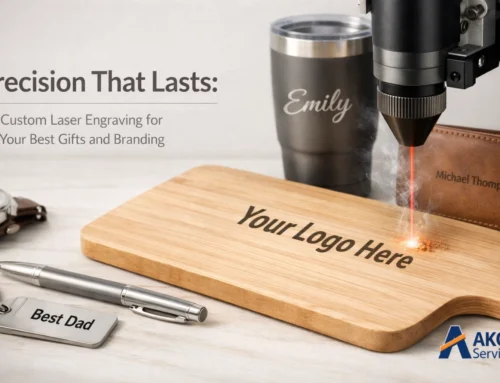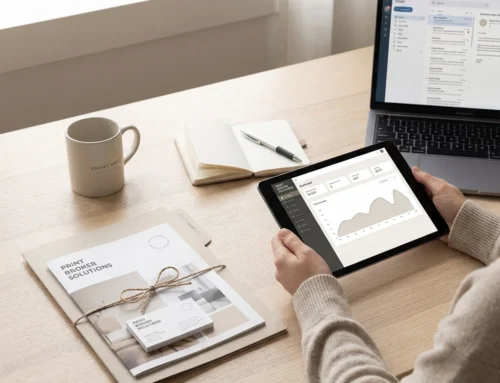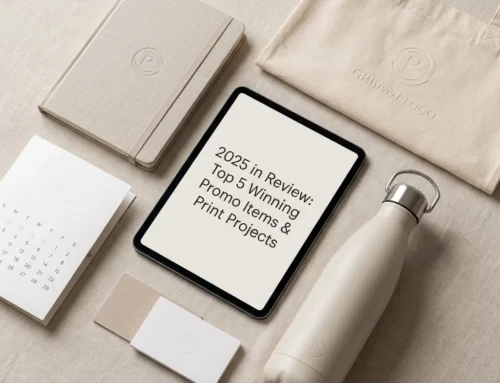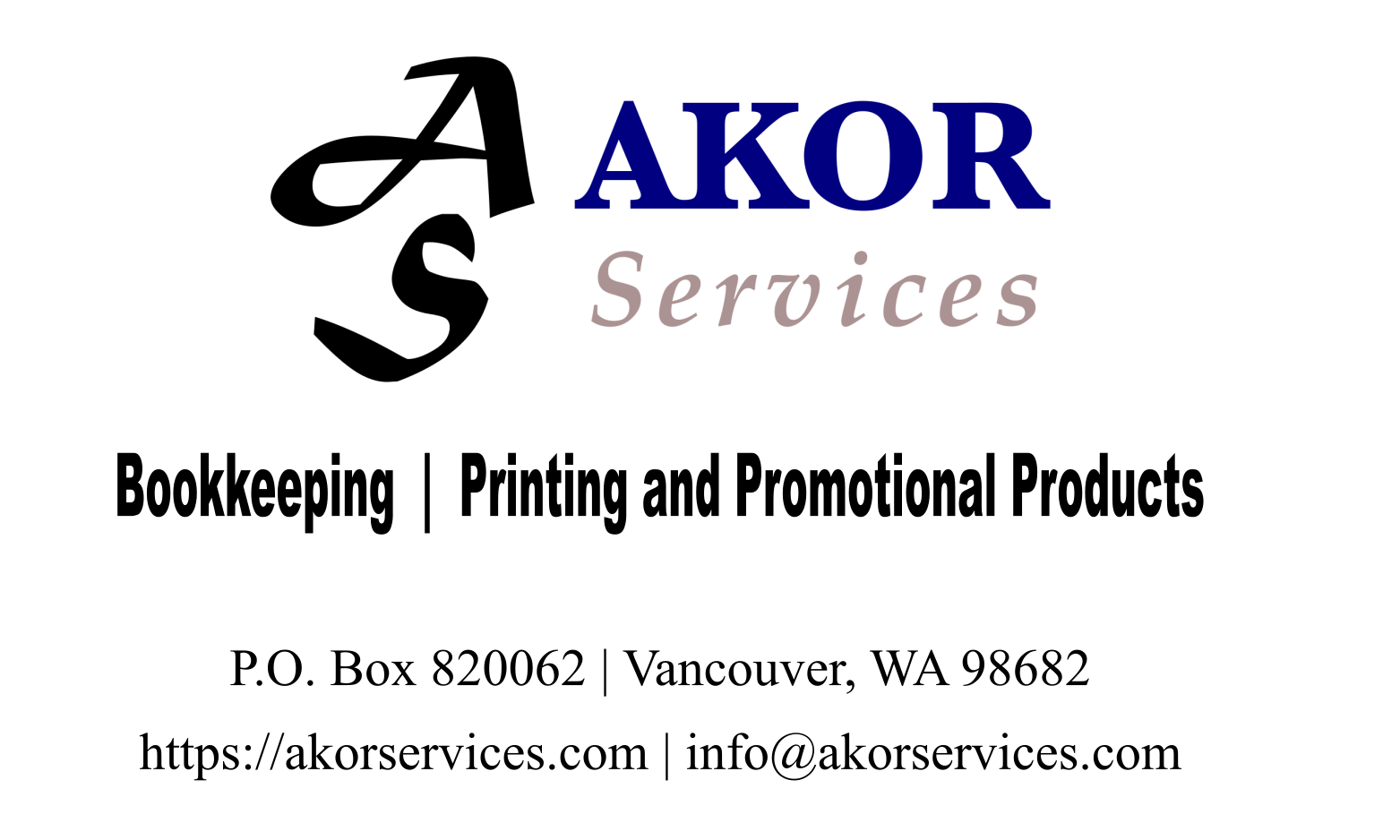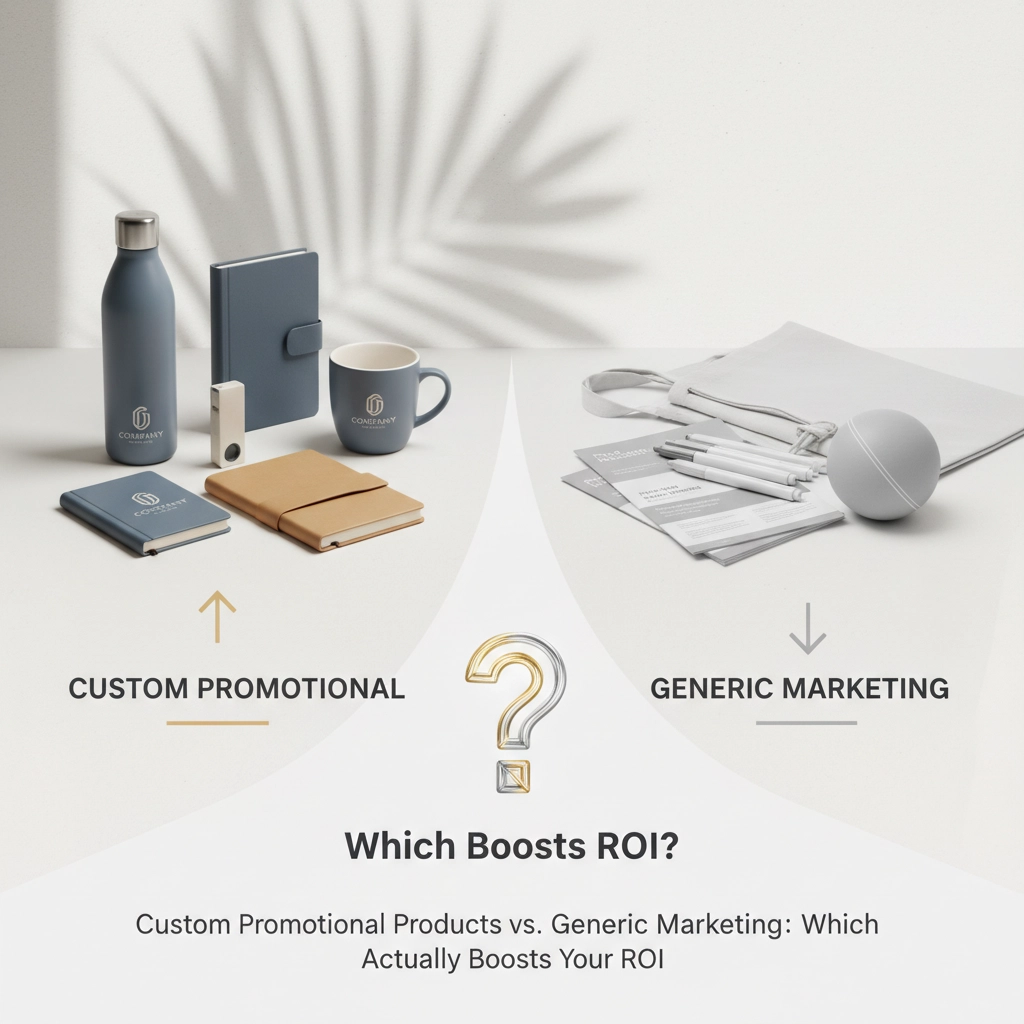
Custom Promotional Products vs. Generic Marketing: Which Actually Boosts Your ROI?
Your marketing budget is precious, and every dollar needs to work harder than ever. When you’re choosing between custom promotional products and generic marketing campaigns, the numbers tell a compelling story that might surprise you. Recent case studies show custom promotional products delivering ROI rates of 500-8,000%, while traditional digital marketing typically maxes out at 200%. But which approach actually makes sense for your business?
The Custom Promotional Products Advantage
Custom promotional products have evolved far beyond cheap pens and keychains. Today’s successful campaigns leverage useful, high-quality items that recipients actually want to keep and use. The key difference lies in their staying power and tangible value.
Real ROI Results That Matter
The numbers don’t lie when it comes to promotional product performance. Sarah’s Locksmith Service invested $800 in branded keychains and generated $7,830 in revenue over 18 months – a 979% ROI. Even more impressive, Martinez Construction saw an 8,467% return from their $1,500 investment in branded tape measures, bringing in $127,000 worth of projects within 12 months. Thompson Plumbing achieved a 1,283% ROI from branded flashlights, far exceeding their best digital marketing performance.
These aren’t isolated success stories. Industry research consistently shows $5-6 returns for every promotional product dollar invested, with well-executed campaigns routinely achieving 500-600% ROI rates.
The Longevity Factor
Here’s where promotional products truly shine: 83% of people keep promotional products for over a year. Compare that to a digital ad that flashes across someone’s screen for a few seconds, and the value proposition becomes clear. Every time someone uses your branded item, they’re reminded of your business – creating dozens or even hundreds of brand impressions from a single investment.
Measurable Tracking Capabilities
Modern promotional products aren’t just about brand awareness anymore. QR codes, unique URLs, and app integrations allow precise measurement of recipient engagement. You can track who received items, how they’re using them, and what actions they take as a result. This level of detailed tracking enables continuous optimization of your promotional strategy.
Generic Marketing: The Traditional Approach
Generic marketing encompasses everything from broad-based digital advertising to mass-market print campaigns. While these approaches have their place, they face significant limitations in today’s competitive landscape.
Short-Lived Impact
Digital ads typically generate only seconds of exposure. Even with retargeting campaigns, the impression duration remains brief. Social media posts get lost in crowded feeds, and email campaigns often end up in spam folders. The fleeting nature of these interactions makes it challenging to build lasting brand recognition.
Limited Personalization
Generic campaigns rely on one-size-fits-all messaging that often fails to resonate with specific audiences. While you can segment demographics and interests, the actual content remains relatively broad. Research shows personalized promotions can drive 5-8x the ROI on marketing spend, highlighting the weakness of generic approaches.
Measurement Challenges
While digital marketing provides detailed analytics, connecting those metrics to actual business outcomes can be complex. Click-through rates, impressions, and engagement metrics don’t always translate directly to sales or customer acquisition. The attribution model becomes murky, especially for businesses with longer sales cycles.
Head-to-Head Comparison
| Dimension | Custom Promotional Products | Generic Marketing |
|---|---|---|
| Average ROI | 500-1000%+ (documented cases up to 8,467%) | 100-200% typical |
| Brand Exposure Duration | 12+ months per item | Seconds to minutes |
| Cost per Impression | Decreases over time as items are used | Fixed cost per view/click |
| Personalization Level | High customization possible | Limited targeting |
| Measurability | Precise tracking with integrated features | Variable, platform-dependent |
| Competitive Differentiation | High through unique positioning | Limited differentiation |
| Customer Engagement | Multi-sensory, tactile experience | Visual/auditory only |
| Immediate Reach | Limited to recipients | Potentially unlimited |
| Speed to Market | 2-4 weeks production time | Immediate launch |
Making the Strategic Choice
The decision between custom promotional products and generic marketing shouldn’t be either/or – it should be about understanding when each approach delivers maximum value.
Choose Custom Promotional Products When:
- Building long-term customer relationships is your priority
- You’re targeting specific industries or local markets
- Your customers make considered purchasing decisions
- You need cost-effective brand exposure over extended periods
- Quality and premium positioning matter to your brand
Consider Generic Marketing When:
- You need immediate, large-scale reach
- Promoting time-sensitive offers or events
- Testing new markets or messaging quickly
- Working with limited budgets that require broad exposure
- Targeting rapidly changing demographics
Maximizing Your Investment
The most successful businesses don’t choose one approach over the other – they strategically combine both. Use generic marketing to create initial awareness and generate leads, then follow up with custom promotional products to build relationships and encourage repeat business.
For promotional products to deliver maximum ROI, focus on items that align with your customers’ daily routines. Contractors appreciate quality tools, office workers value useful desk accessories, and everyone benefits from items that solve real problems. The key is choosing products that recipients will actually use rather than discard.
Industry-Specific Considerations
Different industries see varying levels of success with promotional products. Service-based businesses – plumbing, electrical, landscaping, professional services – typically see higher ROI because their customers keep useful items for years. Retail businesses might benefit more from generic marketing to drive immediate traffic, though promotional products work well for customer retention programs.
B2B companies often find promotional products particularly effective because business decisions involve multiple touchpoints over extended periods. A useful branded item sitting on a decision-maker’s desk provides ongoing brand reinforcement throughout the sales process.
The Bottom Line
Custom promotional products consistently outperform generic marketing when it comes to long-term ROI and customer relationship building. The combination of extended brand exposure, useful functionality, and tangible value creates marketing impact that digital campaigns struggle to match.
However, the best marketing strategies use both approaches strategically. Generic marketing creates broad awareness and immediate response opportunities, while custom promotional products build lasting relationships and encourage repeat business.
For businesses focused on sustainable growth and customer retention, promotional products offer unmatched value. The upfront investment pays dividends for months or years, making them one of the most cost-effective marketing tools available.
Ready to explore how custom promotional products can boost your ROI? Contact us to discuss options that align with your business goals and budget.
Contact Information:
Website: https://akorservices.com/promotional-products-and-printing/
Phone: (360) 334-3373
Email: info@akorservices.com
Allen Beck
AKOR Services
Allen@akorservices.com
© AKOR Services, 2025. All Rights Reserved.

